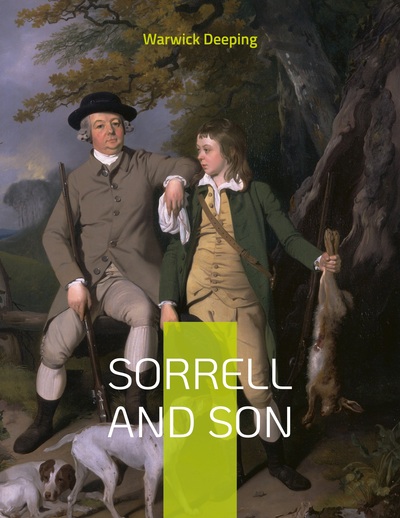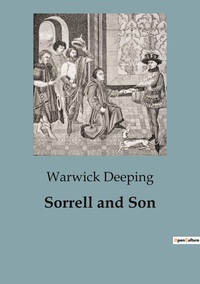Nous utilisons des cookies pour améliorer votre expérience. Pour nous conformer à la nouvelle directive sur la vie privée, nous devons demander votre consentement à l’utilisation de ces cookies. En savoir plus.
Sorrell and Son
Books On Demand - EAN : 9782322419838
Édition papier
EAN : 9782322419838
Paru le : 6 juil. 2022
19,99 €
18,95 €
Disponible
Pour connaître votre prix et commander, identifiez-vous
Notre engagement qualité
-
 Livraison gratuite
Livraison gratuite
en France sans minimum
de commande -
 Manquants maintenus
Manquants maintenus
en commande
automatiquement -
 Un interlocuteur
Un interlocuteur
unique pour toutes
vos commandes -
 Toutes les licences
Toutes les licences
numériques du marché
au tarif éditeur -
 Assistance téléphonique
Assistance téléphonique
personalisée sur le
numérique -
 Service client
Service client
Du Lundi au vendredi
de 9h à 18h
- EAN13 : 9782322419838
- Réf. éditeur : 229164
- Editeur : Books On Demand
- Date Parution : 6 juil. 2022
- Disponibilite : Disponible
- Barème de remise : NS
- Nombre de pages : 440
- Format : H:220 mm L:170 mm E:30 mm
- Poids : 763gr
- Résumé : For Captain Sorrell, officer and gentleman, safeguarding his son's future is his life's single goal. His son returns this complete devotion, and as he grows to manhood and faces despair and triumph, the memory of his father is always with him...
- Biographie : George Warwick Deeping (28 May 1877 - 20 April 1950) was an English novelist and short story writer, whose best-known novel was Sorrell and Son (1925). Deeping's early work is dominated by historical romances. His later novels more usually dealt with modern life, and were critical of many tendencies of twentieth-century civilisation. His standpoint was generally that of a passionate individualism, distrustful both of ruling elites and of the lower classes, who were often presented as a threat to his embattled middle-class protagonists. His most celebrated hero is Captain Sorrell M.C., the ex-officer who after the First World War is reduced to a menial occupation in which he is bullied by those of a lower social class and less education. Deeping's novels often deal with controversial issues. In her 2009 study, The Ordeal of Warwick Deeping,[6] Mary Grover lists these: social work and medicine in the slums (Roper's Row, 1929; The Impudence of Youth, 1946; Paradise Place, 1949.) gender ambiguity (The Return of the Petticoat, 1907) alcoholism (A Woman's War, 1907;[7] The Woman at the Door, 1937; The Dark House, 1941) euthanasia (Sorrell and Son (1925); The Dark House, 1941) wife abuse and justifiable homicide (The Woman at the Door, 1937) shell shock (The Secret Sanctuary, 1923) rape (The White Gate, 1913) pollution of the water supply (Sincerity, 1912) Critical reception : Despite his use of controversial themes, Deeping received little recognition as a serious writer. George Orwell, whose political beliefs were very different from Deeping's, dismissed him as being among the 'huge tribe' of writers who 'simply don't notice what is happening'. Graham Greene also criticized Deeping's work; in his book Journey Without Maps Greene includes Deeping's novels on a list of books "written without truth, without compulsion, one dull word following another."By contrast, Kingsley Amis gave some guarded praise for Deeping's work. Amis read Deeping's Sorrell and Son and initially disliked the book. However, in a later interview Amis praised Sorrell and Son, saying "Its sensibility was very crude but it delivered".



